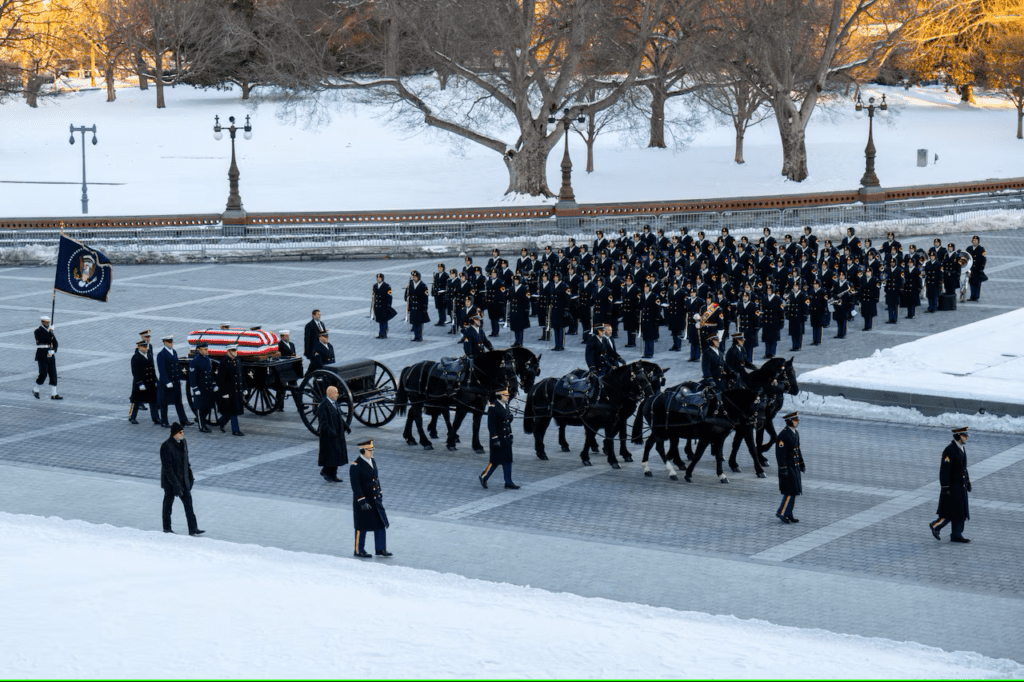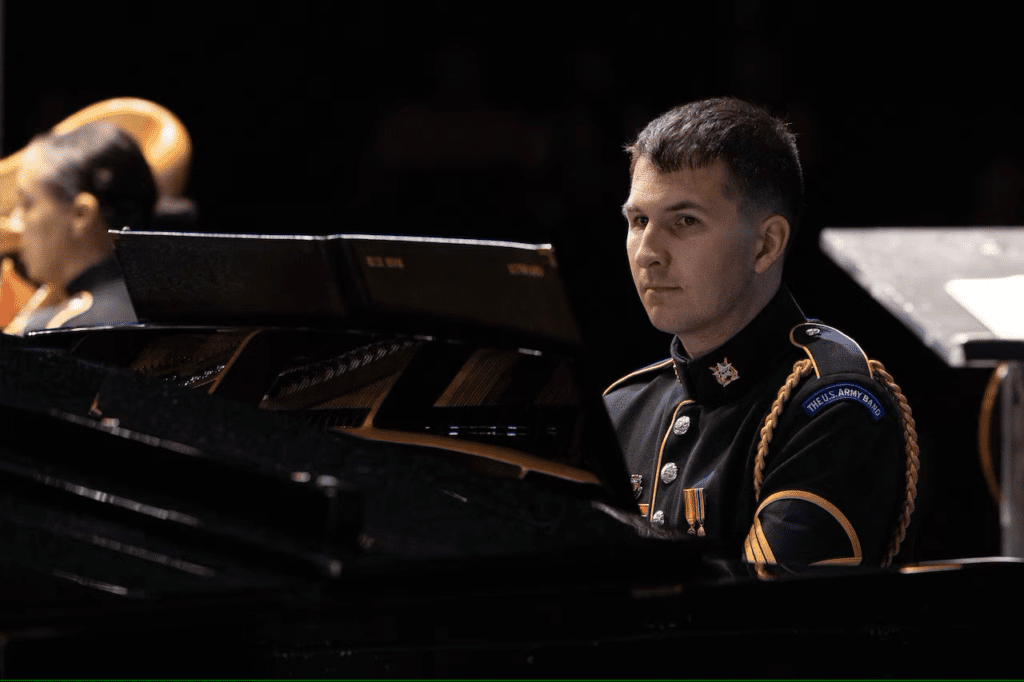Army Sgt. Andrew Kosinski never imagined he would encounter the most extraordinary challenge of his professional career while working for the U.S. Army Band: composing a funeral hymn for a former president, to be played outdoors in biting winds and freezing temperatures.
Kosinski works as a musical arranger for the U.S. Army Band. Founded in 1922 at the behest of Army General John Pershing, the band is one of the Department of Defense's most prominent musical organizations with a reputation for excellence that spans a century.
It's fitting that "Pershing's Own" is at the center of this week's events in honor of former President Jimmy Carter. This mission resonates with Kosinski, who recognizes its historical significance.
"I'm a member of the band's support staff and one of our jobs is to tailor musical arrangements to the specific needs of each event," Kosinski said. "But I never expected to be involved in such an important ceremony."
In the final week of preparations for the state funeral, Kosinski and his colleagues at "Pershing's Own" worked around the clock to ensure that every note was executed flawlessly, despite the impending winter storm.

The centerpiece of the Washington ceremony, which began at Joint Base Andrews with the transfer of Carter's remains and ended with a procession in a caisson down Pennsylvania Avenue, was Kosinski's specially arranged composition, created with a simple fact in mind: the metal valves and keys of brass instruments can lock up in cold temperatures.
"In extreme cold, valves and instrument keys freeze in place, meaning that [performer] they only have access to a few notes to work with," Kosinski explained. "That's why I composed a piece in which I used a technique that mitigates frost."
Kosinski's solution utilized a characteristic common to military units: teamwork.
"In conditions that affect the performance of the instrument, players can cover each other's missing notes to create a smooth piece," He said. "We considered the unique strengths and capabilities of each tool before deciding how they should complement each other."
In his composition - which he called "Frigidus (For the Commander)" - Kosinski replaced the tubas with horns and clarinets where appropriate and honored Carter with an original hymn.
But the conditions affected more than just the band's instruments; the frigid temperatures forced the performers assigned to "Pershing's Own" to don wool coats and thick gloves.
Kosinski acknowledged that winter uniforms bring their own challenges. "Sometimes it can be difficult to push the right button when you're wearing ... big, pointy gloves," He said. Nevertheless, the band played flawlessly despite this handicap and maintained their composure throughout the long festive route.
The staff sergeant credited his colleagues' performance to a rigorous training regimen and a sense of common purpose.
"A special quality of the U.S. Army Band is their toughness - they don't give up, and I think that's something the Army ... instills in basic training," Kosinski said. "You will face challenges and setbacks in this uniform, but the key to success is to pick yourself up and learn from those tough moments."

Kosinski joined the Army Band less than two years ago after completing his master's degree at the Peabody Institute of Music at Johns Hopkins University. Prior to joining the Army, he was a freelance composer, conductor and trumpet player. In 2022, Kosinski was considered for a fellowship offer to pursue a doctorate in music at the University of Georgia, but ultimately declined. The offer to compose for "Pershing's Own" was simply "too precious to refuse", he explained, especially when it meant working alongside talented musicians who were equally willing to answer their nation's call.
Carter's funeral showed Kosinski's innovative spirit and deep respect for history and public service. And the synchronized tones of his arrangements are a testament to "Pershing's Own" devotion to American leaders, no matter the circumstances.
"I can't help but feel extremely fortunate to have been able to contribute to the ceremony and honor President Carter's service," He said. "It was a once-in-a-lifetime opportunity."
Pentagon/ gnews.cz - RoZ



